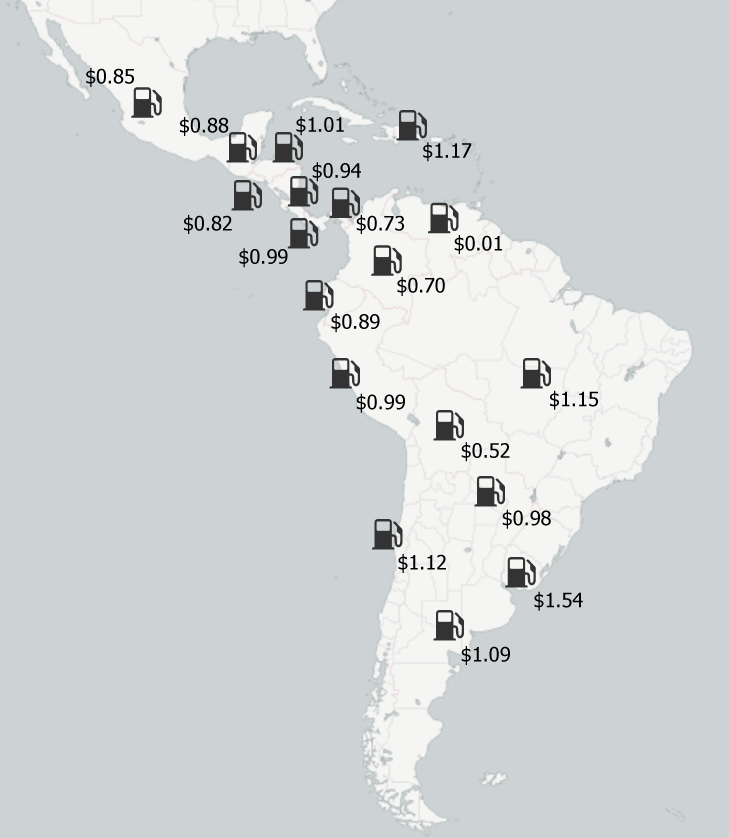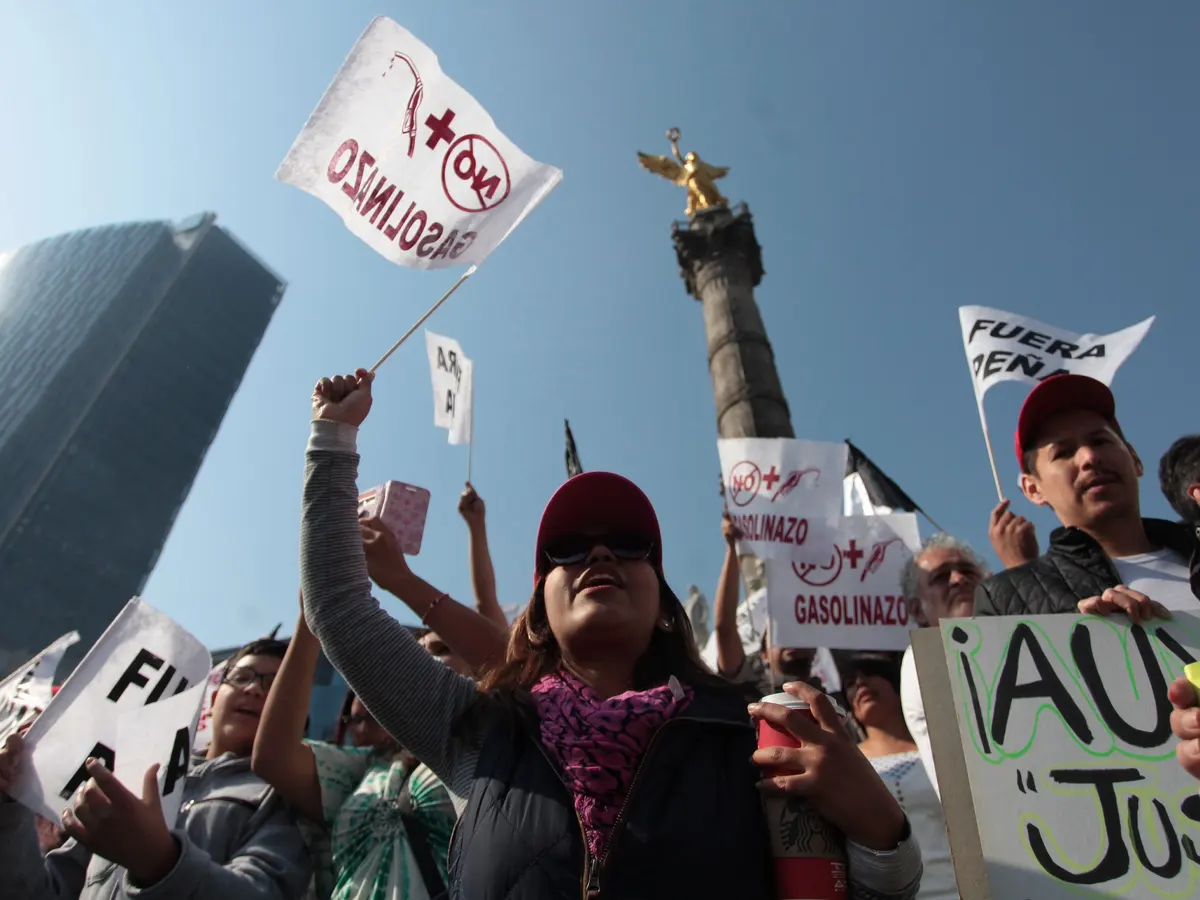After a long period of regulation, Mexico’s government has let fuel prices float. That means Mexicans recently woke up to a 20 percent hike in the cost of gasoline, which has sent many into the streets – and some into stores to loot – in protest of the move.
Why such a strong reaction?
A quick analysis of the price of gas relative to GDP/PPP reveals that Mexico is in the middle of the pack in terms of Latin America. In other words, other countries – namely, Honduras, Nicaragua and Paraguay – would be harder hit by a gasoline price hike. Mexicans – along with Venezuelans, Panamanians, Ecuadorians and Chileans – are more immune to the shock.
Of course, Mexicans are already spending 3.38 percent of their income on fuel, according to a recent Bloomberg analysis, one of the world’s highest. But it’s not as if gas prices haven’t hit these levels before.
The strength of the reaction can be explained by more than the annoyance of paying a few more pesos at the pump: It’s the feeling that those pesos were lost.
One of the fundamental principals of the idea behind loss aversion is that losses loom larger than gains. When we have something, it is much worse to lose it than to have never had it at all. Many Mexicans may feel like they have lost those pesos thanks to deregulation, as if something they had was taken from them.
But they’d be wise to look at their neighbors, many of whose citizens are a lot less insulated from economic instability – and rising fuel prices. And Mexico’s neighbors would be wise to look to the political unrest in Mexico when tinkering with a benefit that their citizens currently have (or believe they have).


Reply